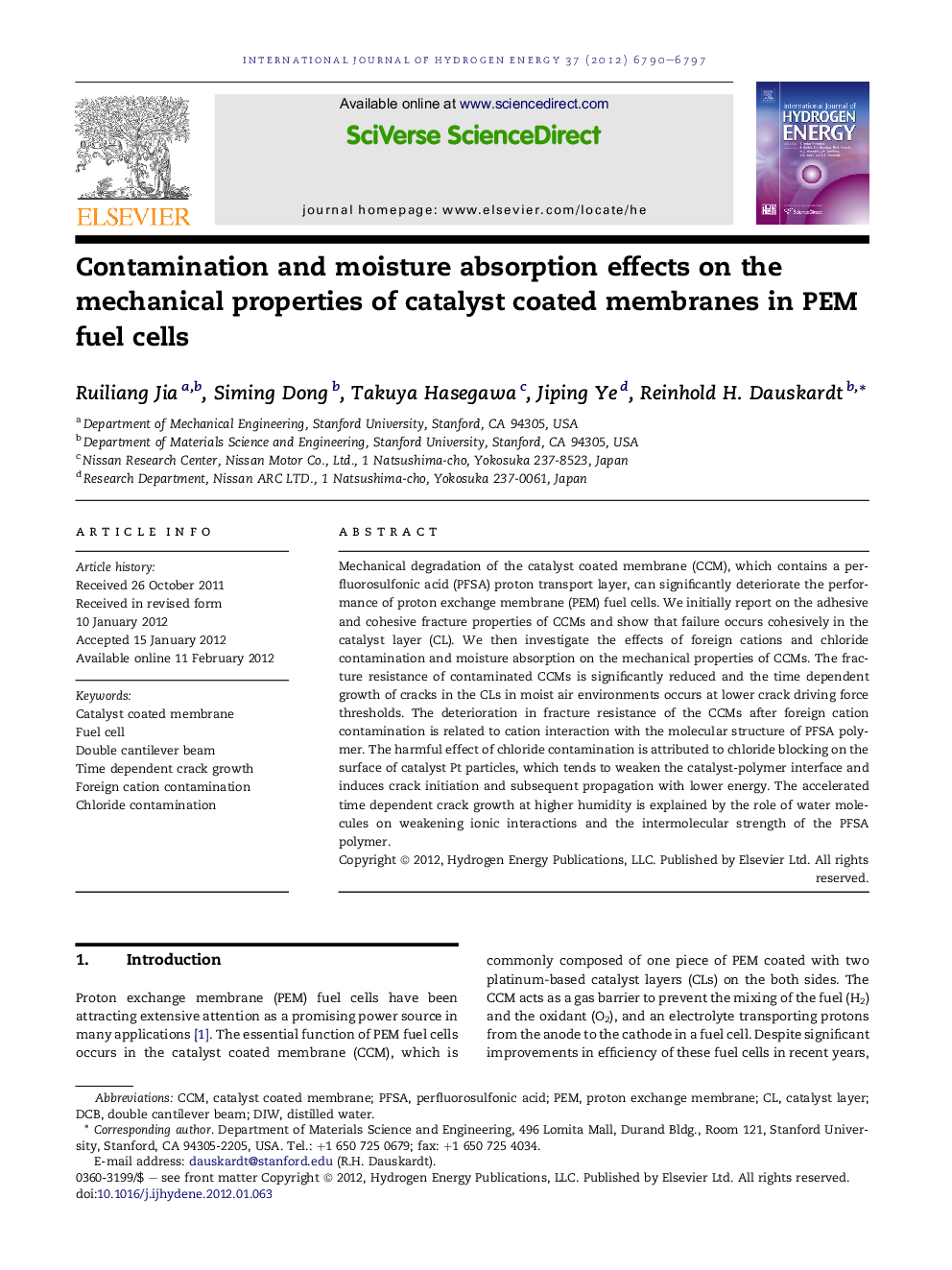| کد مقاله | کد نشریه | سال انتشار | مقاله انگلیسی | نسخه تمام متن |
|---|---|---|---|---|
| 1276622 | 1497561 | 2012 | 8 صفحه PDF | دانلود رایگان |

Mechanical degradation of the catalyst coated membrane (CCM), which contains a perfluorosulfonic acid (PFSA) proton transport layer, can significantly deteriorate the performance of proton exchange membrane (PEM) fuel cells. We initially report on the adhesive and cohesive fracture properties of CCMs and show that failure occurs cohesively in the catalyst layer (CL). We then investigate the effects of foreign cations and chloride contamination and moisture absorption on the mechanical properties of CCMs. The fracture resistance of contaminated CCMs is significantly reduced and the time dependent growth of cracks in the CLs in moist air environments occurs at lower crack driving force thresholds. The deterioration in fracture resistance of the CCMs after foreign cation contamination is related to cation interaction with the molecular structure of PFSA polymer. The harmful effect of chloride contamination is attributed to chloride blocking on the surface of catalyst Pt particles, which tends to weaken the catalyst-polymer interface and induces crack initiation and subsequent propagation with lower energy. The accelerated time dependent crack growth at higher humidity is explained by the role of water molecules on weakening ionic interactions and the intermolecular strength of the PFSA polymer.
► Adhesive and cohesive fracture properties of CCMs are initially studied.
► Fracture resistance of foreign cation contaminated CCMs is significantly reduced.
► Impurity chloride contamination reduces fracture resistance of CCMs in fuel cells.
► Morphology of catalyst materials in CCMs is characterized by electron microscopy.
► Time dependent crack growth in catalyst layers is accelerated at higher humidity.
Journal: International Journal of Hydrogen Energy - Volume 37, Issue 8, April 2012, Pages 6790–6797